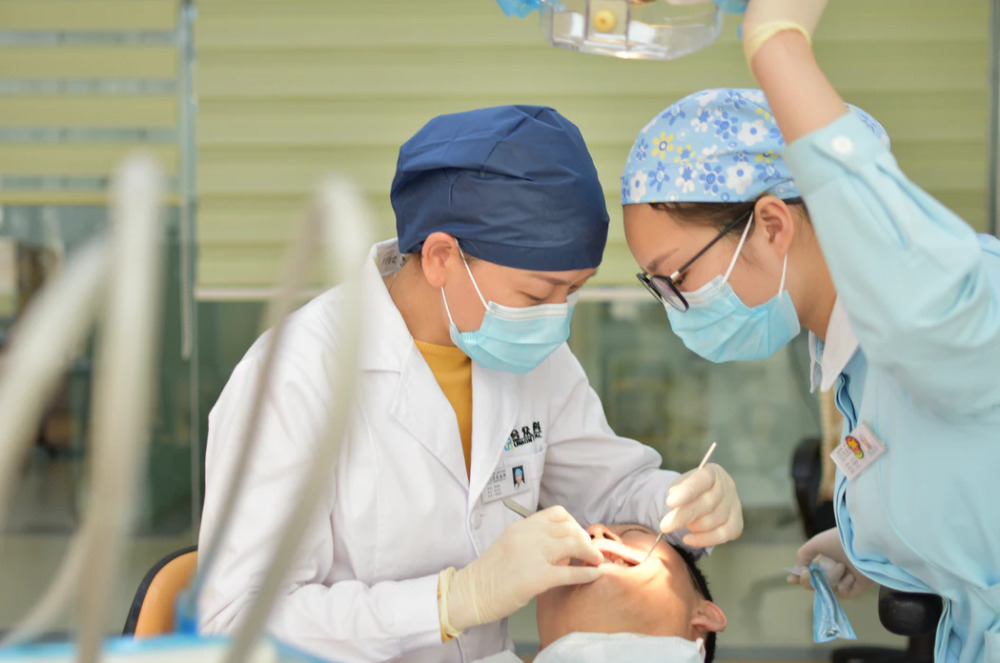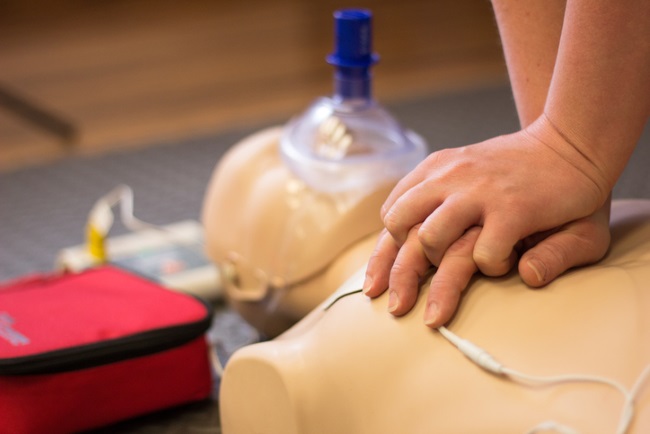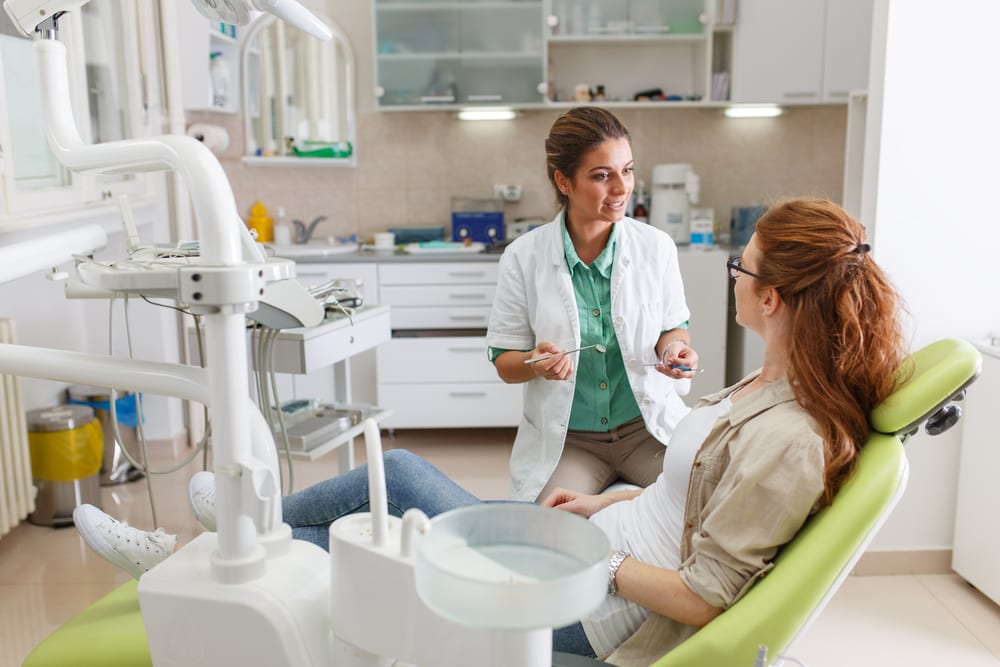
Medical Emergencies in Dental Practice
A medical emergency can happen, usually when least expected, in a dental clinic during treatment. Approximately 90% of the crises are mild, but 8% were more serious. Only 35% of the patient who had medical emergencies were known to have some underlying disease, while only 33% of those patients were found to have a cardiovascular disorder. In other words, medical emergencies can arise in any person who has no alarming medical conditions during routine dental treatment. The best dental clinics in Delhi are equipped to handle the medical emergencies which may occur during a dental procedure.
The most common medical emergencies to occur in a dental office are:
- Syncope (Faint)
- Hyperventilation due to Panic Attack
- Acute Asthma Attack
- Angina/Myocardial Infarction
- Epileptic Seizures
- Diabetic Emergencies – likely (Hypoglycaemia) low blood sugar level
- Allergies/Hypersensitivity Reactions
- Choking and Aspiration
- Cardiac Arrest
Medical emergencies are most likely to occur during and after local anaesthesia, primarily during a complicated tooth extraction or a prolonged root canal treatment that required multiple local anaesthetic injections to remove the pain.
Among the different emergencies, over 60% are syncope, with low blood sugar level the next most frequent at 44%, followed by mild allergic reaction at 8.8% and ingestion of foreign bodies at 4.1%.
This blog focuses on the prevention of medical emergencies during a surgical dental procedure.
- To mitigate the frequency and severity of medical emergencies in dental offices, the patients can play an essential role by telling the dentists all their past medical history, including health conditions, hospitalization and surgeries. The medications they are taking and their dosages can also give the treating dentist an idea about the severity of the medical conditions.
- The patients need to disclose the history of medical emergencies during their previous dental treatments, anxiety and reactions, a dental experience like painful TMJs after a lengthy procedure and difficulty in having good freezing from the local anaesthesia in their previous treatments.
- Dentists and their team should be skilful in picking out the predisposing medical conditions when reviewing medical and dental history. The medical and dental questionnaire forms should be simple for the patient to complete, yet inclusive of any pertinent medical and dental information to screen potential medical complications. The medical and dental history are crucial to screen out the patients who are prone to having medical complications during dental treatments.
- The vital signs of all patients should be noted and taken. Patients of high risk should have a medical consultation with their physicians and medical specialists before extensive dental treatments.
- Proper treatment planning can help to minimize the risk of eliciting medical issues. The planning involves looking for alternative procedures like root canal therapy instead of extractions, placing a fixed bridge instead of an implant to replace a missing tooth and many more.
- When it comes to local anaesthesia, the dentist can choose those one without epinephrine to minimize the cardiovascular workload.
- The dentist can break a long appointment into two shorter appointments.
- The dentist and the team should be well prepared to deal with medical emergencies when they happen. Everyone in the office should be trained and certified in doing CPR. The recognition of the symptoms is essential because if the symptoms are not recognized early on, the medical condition can spiral down quickly if not appropriately managed early on.
What are the Common Medical Emergencies in Dentistry?
It is important to realise that there is more than just this brief list of situations that can occur while patients are visiting your surgery. However, these are some of the common problems that occur. Early recognition of these problems can massively reduce the risk to patients and having staff that are confident and skilled to manage the specific emergency appropriately is essential.
Simple Faint (Vasovagal Syncope)
A fainting episode is a brief, sudden loss of consciousness. The medical term for this is vasovagal syncope, so we will just call it a simple faint for the purposes of understanding. This is caused by decreased blood flow to the brain. There are several causes of this, but within a dental practice, one of the major reasons for a fainting spell is due to either pain, fear, emotional stress or anxiety. Most dental patients who suffer from a fainting spell have no underlying neurological or heart conditions.
Local Anaesthetic Emergencies
Some people have an allergy to local anaesthetic. Although this is rare, it is something that must be considered. In the unlikely event that this does occurs, the situation would be treated in the same way as for any other case of anaphylaxis. Put into context the number of local anaesthetics administered in dental practices, the complication rates are low. Understanding how to identify the signs and symptoms is important. Fainting is more common with the injection of local anaesthetic than the allergic reaction to the anaesthetic itself.
Stroke
A stroke can occur without warning at any time. This is a risk, not only within a dental surgery, but anywhere. The symptoms include loss of consciousness and weakness of limbs on one side of the body. It is often identified by one side of the face, may become weak and can also droop. A stroke can also affect the patient’s speech as it can become slurred.
Hyperventilation (Panic Attack)
Panic attacks and hyperventilation are a much more common emergency than is often thought. Extended hyperventilation can be very distressing for the patient. Anxiety about their purpose of visiting your dental practice is often a contributing factor rather than any actual dental work that causes this. Hyperventilation leads to carbon dioxide being excessively removed from the lungs. If hyperventilation persists, hand and foot spasms can be seen.
Asthma
Asthma, although common, is a potentially life-threatening condition and should always be taken seriously. This should be picked up when a patient’s medical history is checked, however, knowing how to deal with a patient having an asthma attack is crucial. It is important that patients with asthmatic patients bring their usual inhaler with them. If the inhaler has not been brought it must be in the emergency kit or treatment should be deferred. Drugs which may be prescribed by dental practitioners, particularly non-steroidal anti-inflammatory drugs (NSAIDs), may worsen asthma and are therefore best avoided.
Chest Pain (Cardiac Problems)
If a patient suffers from chest pain while visiting your dental practice, the patient is likely to have a previous history of cardiac disease. Your facility will already have good records of patient history on hand. However, these records will not help if a problem occurs while the patient is receiving a dental treatment. If a patient does have medication for a condition, he or she should be carrying this with them. Knowing the signs and symptoms of this is crucial for your team. Being comfortable with how to react is essential.
Epileptic Seizures
A patient history will reveal a history of epilepsy. Strong record keeping and transfer of information between the admin and dentists is critical. This information regarding the nature of any seizures, their frequency and degree of control should be noted. The signs and symptoms of epilepsy vary considerably.
Diabetic Emergencies
Patients with a history of diabetes will know how to control their blood glucose levels. However, with patients that have recurring hypoglycaemic episodes and markedly varying blood glucose levels the patient has a risk of hypoglycaemia during medical treatment. It is recommended to ensure that patients have had something to eat prior to dental treatment. Knowing how to deal with hypoglycaemia, which is more common than hyperglycaemia (which is a much slower onset) is important for dental practices.
Chocking & Aspiration
Due to the nature of dental treatments, patients are at an increased risk of choking and aspiration. Procedures are in place within the dental community to reduce this risk, however, it is essential that the correct dental first aid procedures are developed by staff to ensure the safety of their patients.
The components of a sound medical emergency plan for the dental office should include:
- Medical emergency prevention
- Development of an action plan
- Recognizing a patient’s distress and management of medical emergencies
- Emergency drugs and equipment
During the dental procedure, the vital signs are checked periodically with a machine. The patient is asked regularly about the feeling to make sure they are in good condition.
A thorough pre-operative discussion with the patient can reduce the anxiety by answering questions the patient may have about the procedures, pain during and after the process, expectations etc. The best dentists in Delhi, make it a point to have a detailed comprehensive consultation with the patient with detailed medical history. Showing empathy and care to the patient can calm the patient down. The more detail the dental team has, the better and more effective a plan of action can be.
There are some other techniques that the office and the patient can control the anxiety:
- Deep breathing during times of particular stress.
- Distraction through music, podcasts or video.
- Discuss medication and sedation options that might be right for you.
- Establish control through hand signals so your dentist knows when to stop
- If sedation is not used, advise patients, especially those who are anxious, to eat before treatment to maintain a stable blood glucose level during stressful treatment.
- Recline the patient in a supine or semi-supine position for treatment.
To book an appointment with us in, ‘Smile Delhi – The Dental Clinic’– call us on +91-9811106871 or whatsapp Dr. Suprriya B Bhatia on +91-9811106377. You can also mail us on [email protected]
“We Care To Make You Smile”
Posted by: Dr Hema

































































